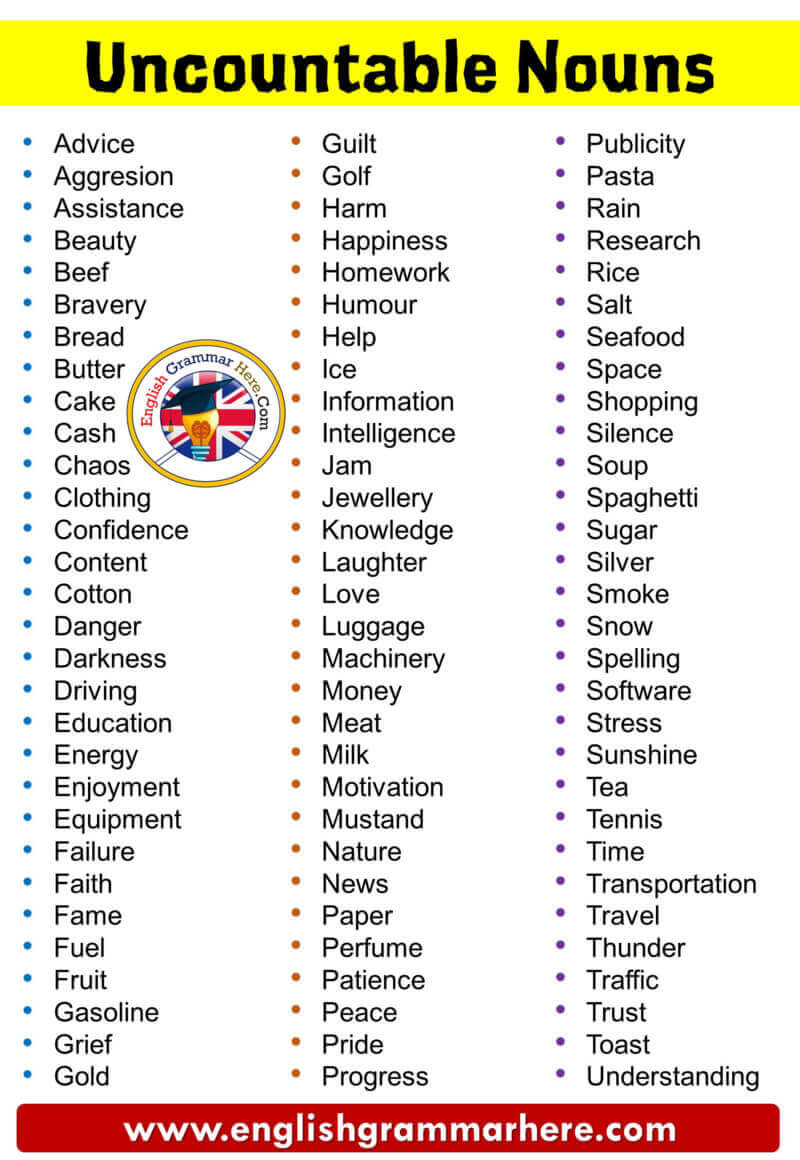
Countable and Uncountable Nouns List, Definition and Examples English Grammar Here
Other common uncountable words that often cause problems are: equipment, furniture, transport, knowledge, countryside, traffic, research, progress, evidence, machinery. You also need to know whether a noun is countable or uncountable in order to decide whether to say much or many.
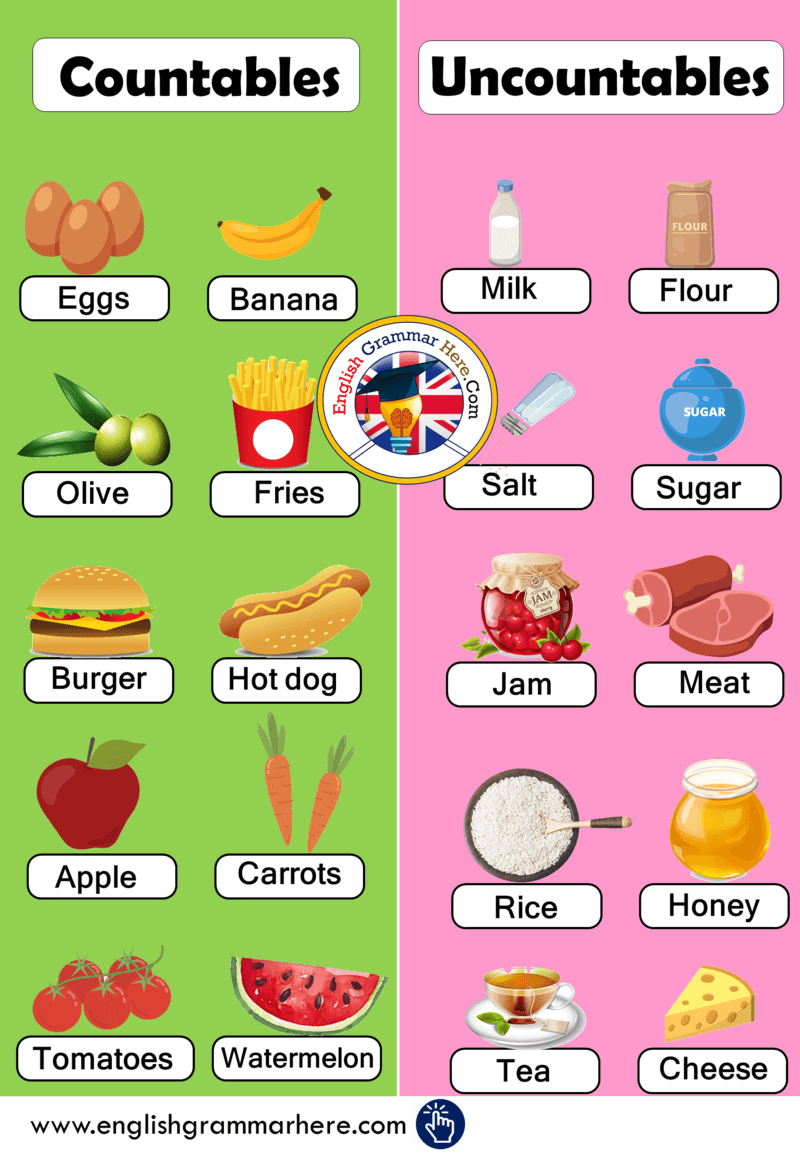
Countable And Uncountable Nouns
Some nouns are both countable and uncountable, but with a difference in meaning. Paper and coffee are becoming expensive commodities.. She has a coffee (i.e. a cup of coffee) and reads a paper (i.e. a newspaper) every day.. She has just finished another paper. (i.e. a manuscript) The role of traditional medicine is being undermined by alternative medicine.. The occurrence and fate of medicines.

Evidence Countable or Uncountable? Mastering Grammar
Simply you have to look it up - evidence is uncountable and judgement meaning opinion can be countable and uncountable. I'm referring to the logic behind a noun being countable or uncountable in general (information is countable in some languages, but in English informations is a mistake) - Lucky Jun 1, 2015 at 18:00

countable and uncountable nouns English ESL worksheets pdf & doc
Noun-countable and noun-uncountable refer to the classification of nouns based on whether they can be counted as individual units or not. Here's a brief explanation of each: Countable Nouns: Countable nouns are those nouns that can be counted as separate individual items. They can be used with numbers, such as "one book," "three apples," or "five cars." Countable nouns have both singular and.
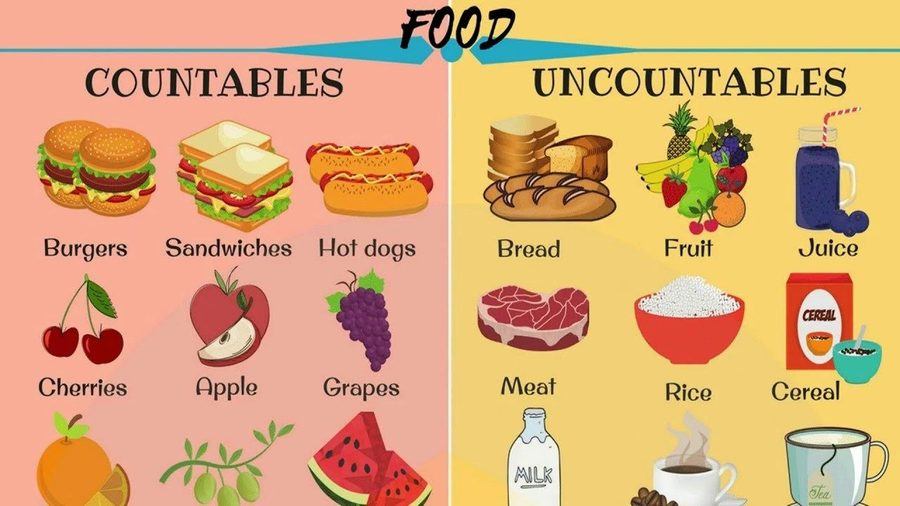
Countable & Uncountable Nouns English Quizizz
In English grammar, some things are seen as a whole or mass. These are called uncountable nouns, because they cannot be separated or counted. Some examples of uncountable nouns are: Ideas and experiences: advice, information, progress, news, luck, fun, work Materials and substances: water, rice, cement, gold, milk
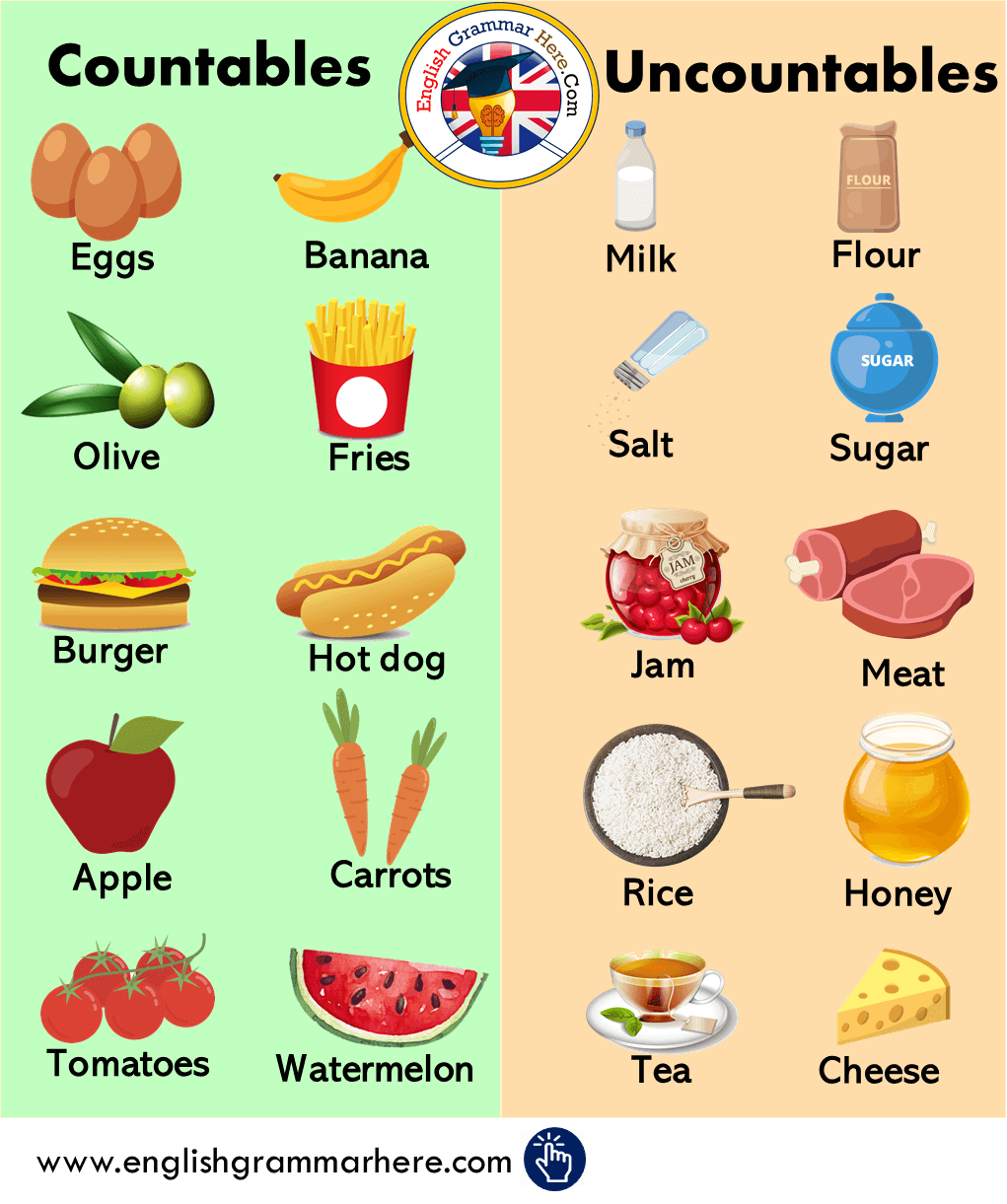
Countable And Uncountable Nouns Images Countable And Uncountable Nouns North Sea English
Evidence You may well be right, but you do not have evidences to support your case. Singular: a piece of evidence Plural: a lot of evidence, a huge amount of evidence Negative: not much evidence He came to me with a startling piece of evidence. There is a lot of evidence to support this hypothesis. He did not have much evidence to prove his alibi.
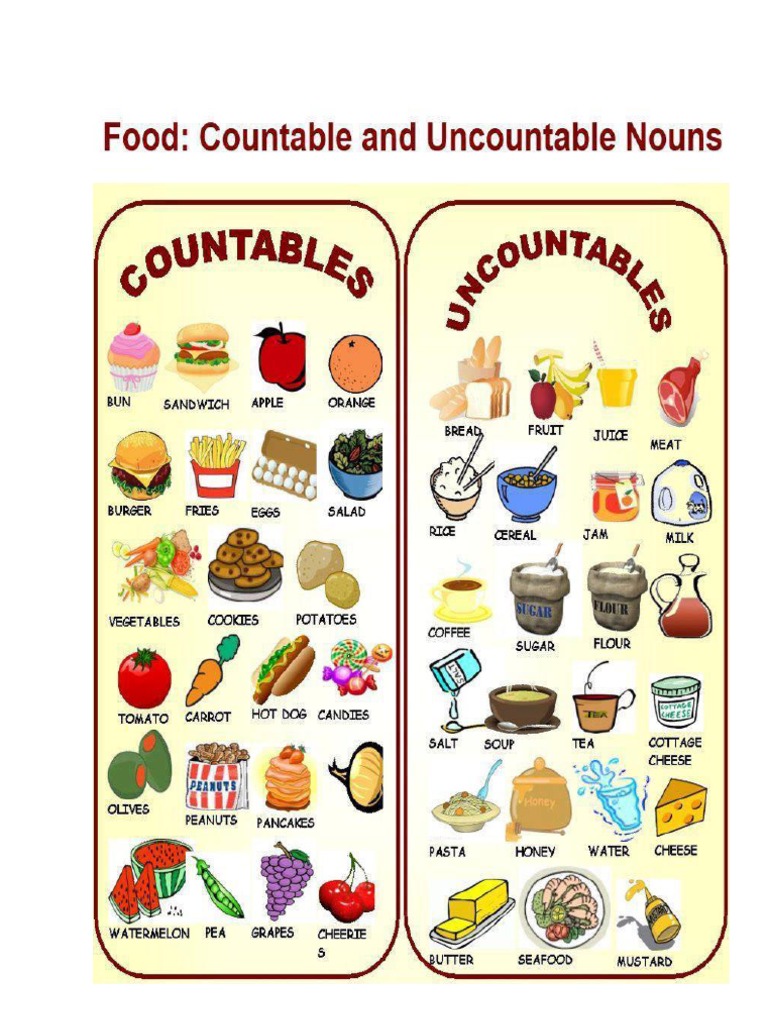
Countable and Uncountable Nouns PDF
1 Answer Daniel L. May 31, 2016 Crowd is an uncountable nouns, an evidence is a countable nouns. Explanation: Crowd is a general noun, so it is uncountable. You don't use any articles with it. Evidence is a countable noun, so you can use articles (both definite the and indefinite an) with it.
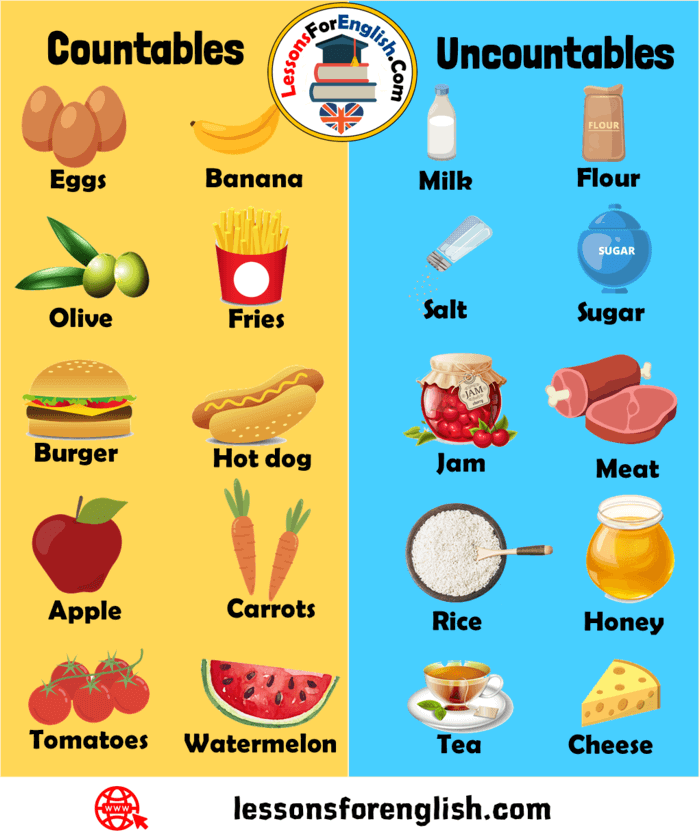
Countable and Uncountable Nouns List, 100 Countable and Uncountable Words and Examples Lessons
[uncountable, countable] the facts, signs, or objects that make you believe that something is true evidence (of something) There is convincing evidence of a link between exposure to sun and skin cancer. The room bore evidence of a struggle. evidence (for something) We found further scientific evidence for this theory. evidence (that…)
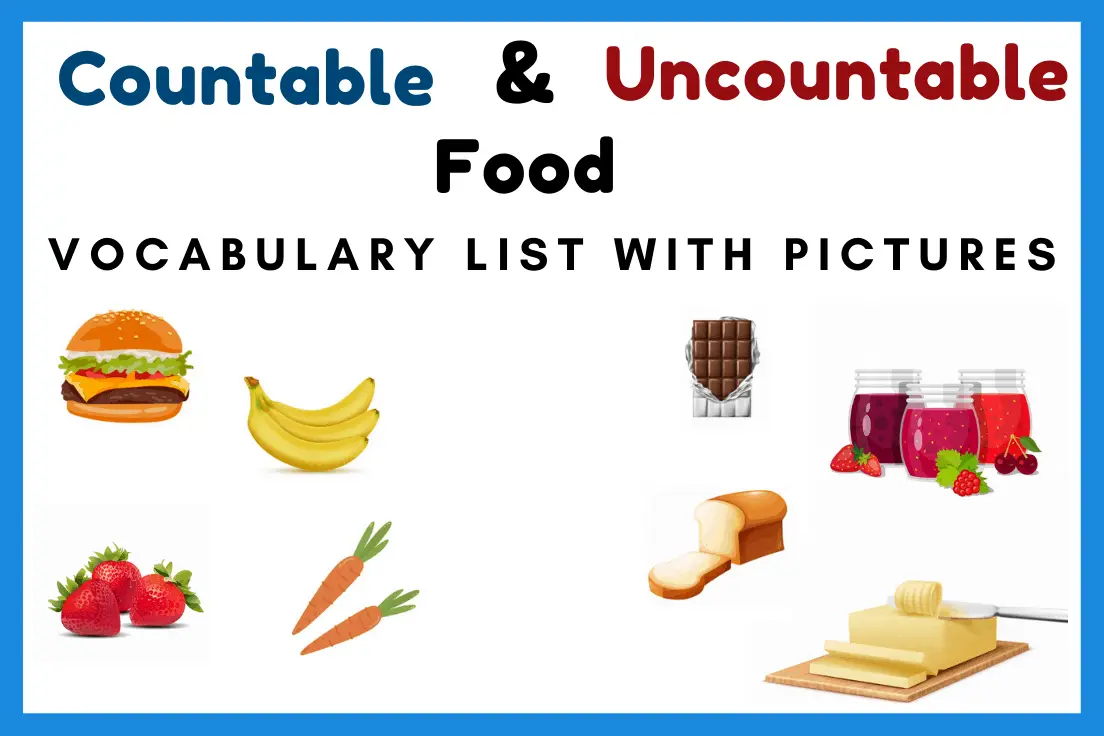
Countable and Uncountable nouns
Grammar explanation. Nouns can be countable or uncountable. Countable nouns can be counted, e.g. an apple, two apples, three apples, etc. Uncountable nouns cannot be counted, e.g. air, rice, water, etc. When you learn a new noun, you should check if it is countable or uncountable and note how it is used in a sentence.

Countable and uncountable nouns gram… English ESL powerpoints
From Longman Dictionary of Contemporary English Related topics: Law ev‧i‧dence1 /ˈevɪdəns/ S2 W1 AWL noun 1 [ uncountable] facts or signs that show clearly that something exists or is true evidence of At present we have no evidence of life on other planets. evidence for There is no evidence for these claims. evidence that Do you have evidenc.
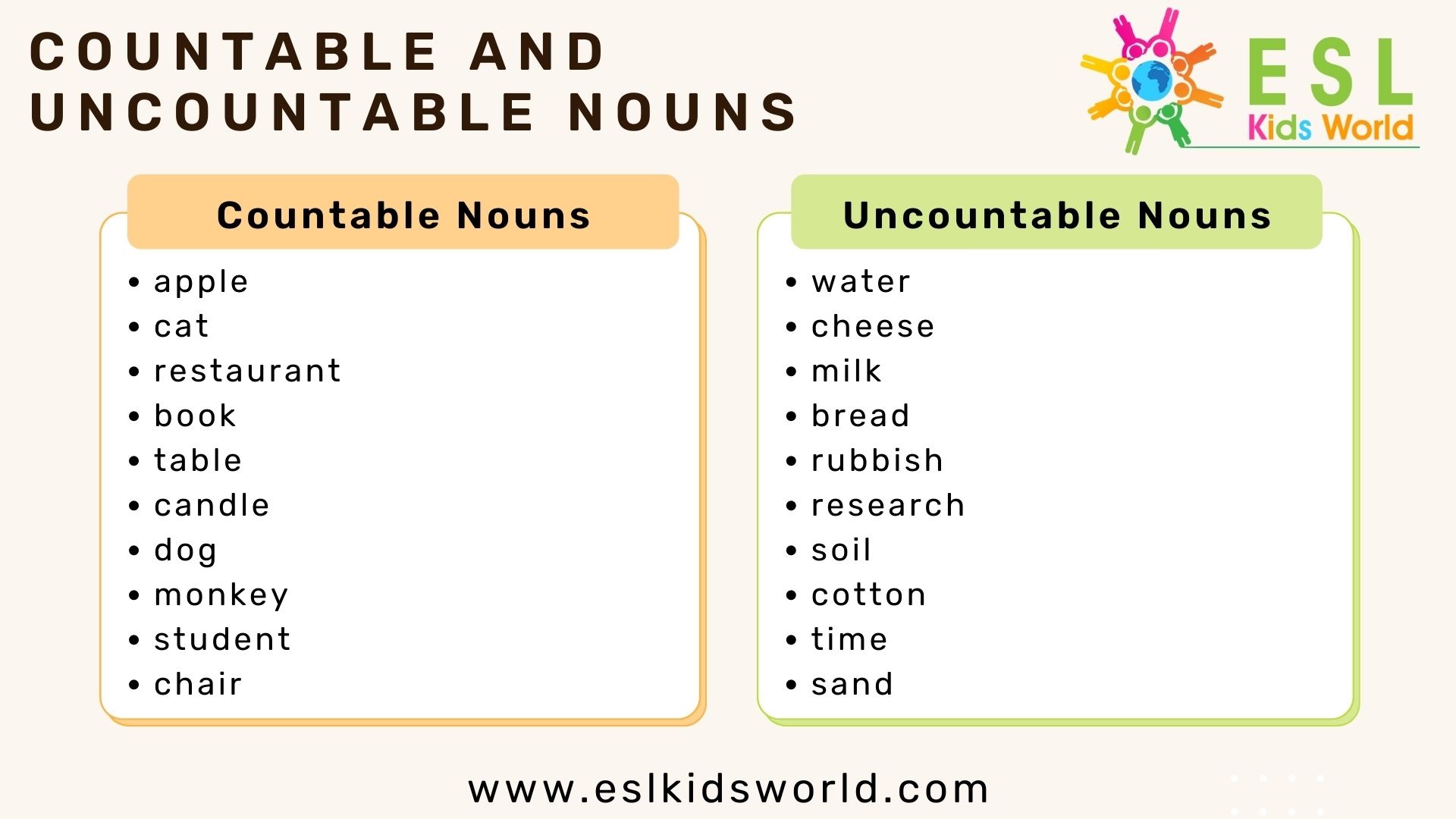
Countable and Uncountable Nouns Countable or Uncountable Noun? ESL Kids World
Many terms that describe amount (e.g., 'some', 'a lot of' and 'most') can be used with both uncountable and countable nouns (although note that these terms are often too vague to use in academic writing). Uncountable: Some vegetation has started to grow over the study site. Countable: Some chickens have also been spotted in the area.

Countable and uncountable nouns
Torsten November 28, 2008, 8:07am 1 Hi, I used to think that the noun evidence is uncountable until I came across the following sentence by Napoleon Hill: History is filled with evidences that Leadership by Force cannot endure. So evidently the noun 'evidence' is countable after all. Or is it not? Thanks, Torsten [YSaerTTEW443543]
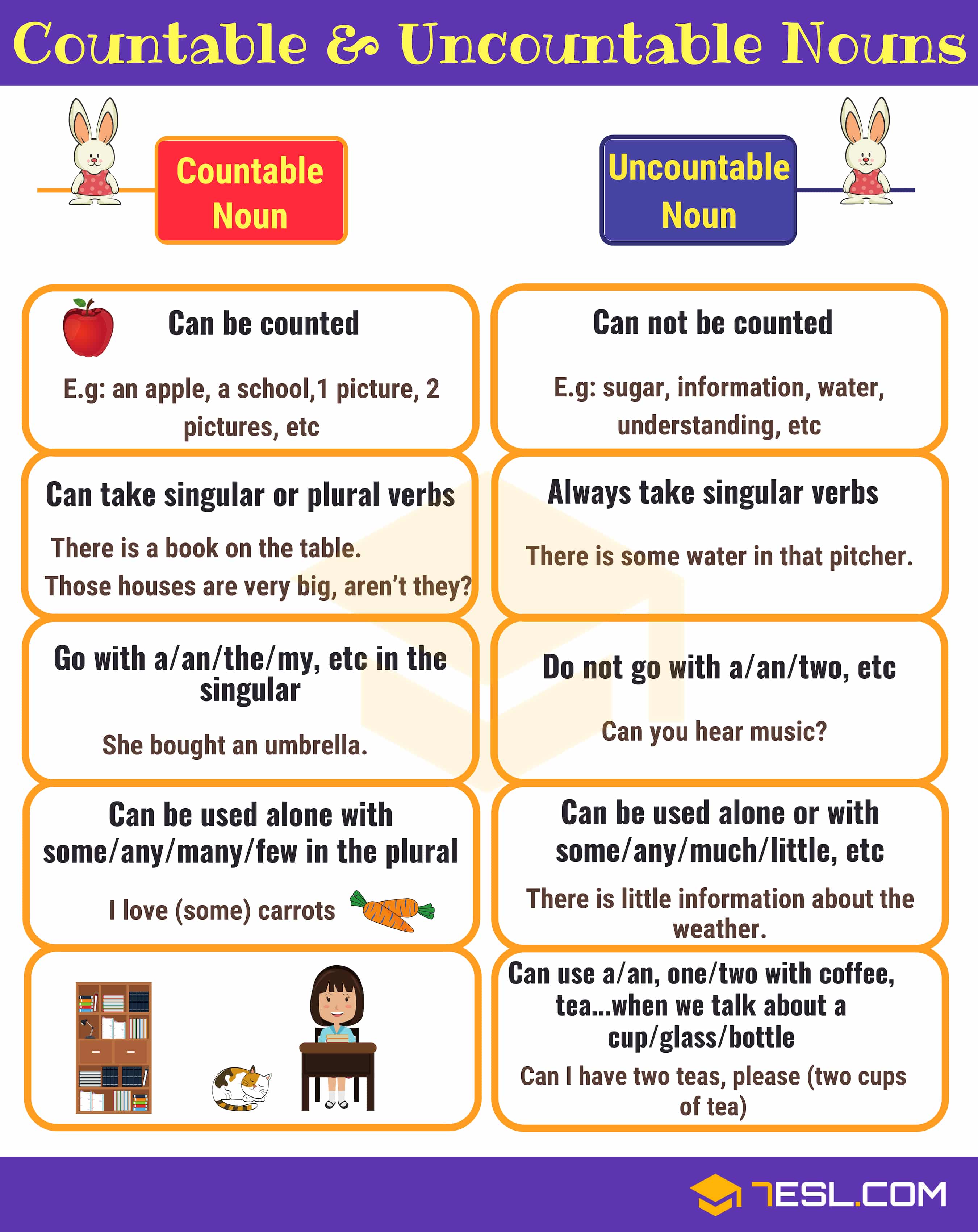
Countable And Uncountable Nouns Rules
/pruf/ [uncountable, countable] information, documents, etc. that show that something is true synonym evidence positive/conclusive proof proof of something Can you provide any proof of identity? Keep the receipt as proof of purchase. These results are a further proof of his outstanding ability. proof that…

Countable & Uncountable Nouns Foods with Flashcards Uncountable nouns, Nouns, Plurals
Law information drawn from personal testimony, a document, or a material object, used to establish facts in a legal investigation or admissible as testimony in a law court:without evidence, they can't bring a charge signs or indications of something:there was no obvious evidence of a break-in
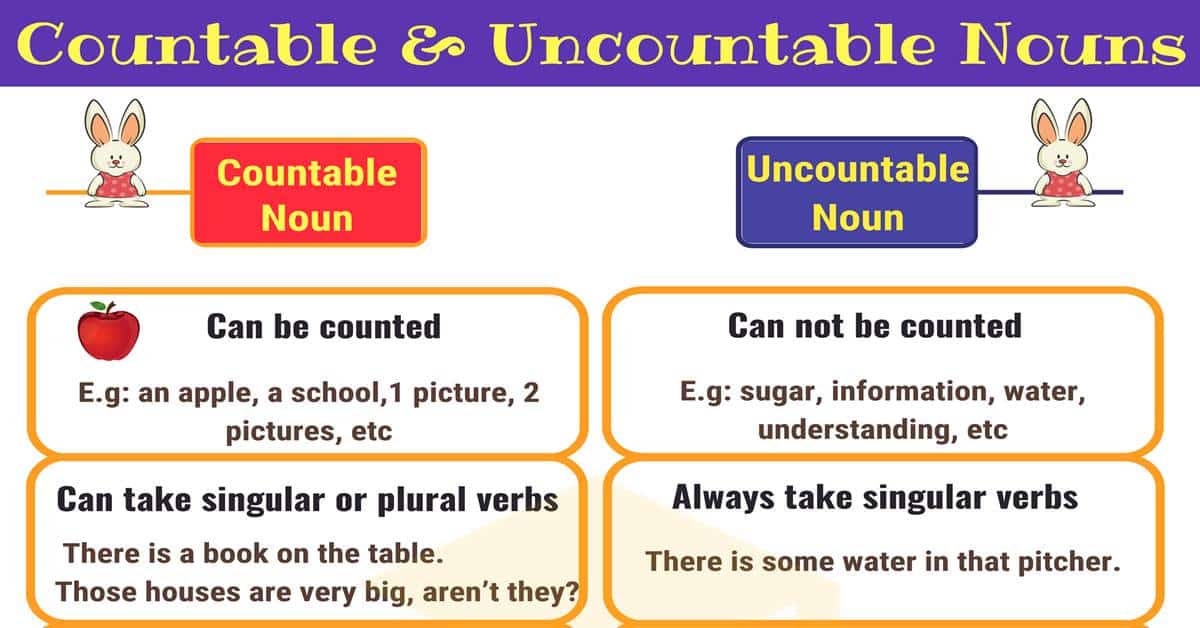
Mastering Countable vs. Uncountable Nouns in 2024 Tips
Uncountable nouns are materials, concepts, information, etc. which are not individual objects and can not be counted. Table of Contents Nouns that are Count and Noncount Iron Glass Time Paper Light Work Chicken Hair Room Coffee, Water, Beer, Tea, Soda Meat Fruit Experience Fire Memory Nouns that Can Be Countable or Uncountable | Pictures

Nouns that Can Be Countable or Uncountable Useful List & Examples • 7ESL Nouns, Learn english
Uncountable nouns, also known as mass nouns or noncount nouns, refer to a mass of something or an abstract concept that can't be counted (except with a unit of measurement). In contrast, countable nouns can be counted as individual items.